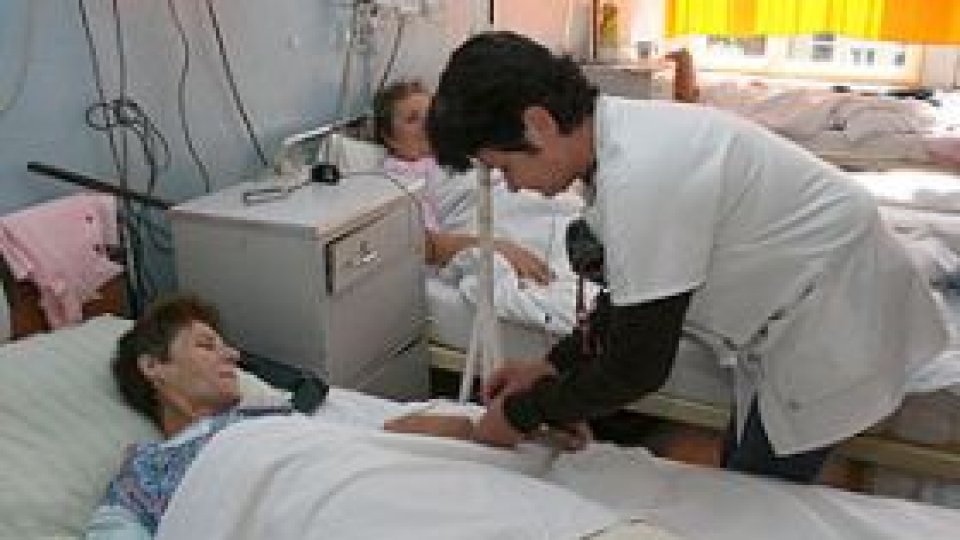Top 2010 health care decisions
The decisions taken last year in the health system include the introduction of the health card, of the co-payment system and the home verification of the employees on sick leave.

07 Ianuarie 2011, 10:43
The Health Ministry declared that it decided to reform the functioning of the health care system.
For 2011, the most important projects for the Ministry of Health are the introduction of the national health card, re-organizing the hospital system and several measures aimed at training young doctors, it is presented in a press release of the Ministry of Health.
Regarding the introduction of the health card, the National Printing House announced the Ministry of Health that they would begin to manufacture it at the end of January 2011.
Reorganizing health units will be achieved mainly through merger or dissolution for both the Health Ministry and local authorities.
Also, the Ministry of Health began its steps so that medical school graduates, beginning with the 2005 promotion will be able to get a job in a health facility even if they did not pass the residency contest.
If 2010 has brought major increases of the amounts paid by patients for reduced cost prescriptions, 2011 announces a new wave of payments for those who contribute to health.
The decisions taken last year in the health system include the introduction of the health card, of the co-payment system and the home verification of the employees on sick leave.
The Health Card will be a document that will become mandatory for each insured person who wants access to medical services in the public health facilities, but also for doctors in the system, who will receive in their turn a professional medical card.
Health Minister Cseke Attila declared he wanted the National Printing House to issue them starting January 1st so they become operational during 2011.
The card is issued individually and will be released by the Health Insurance Company where the insured person, aged above 18, is registered. This will certify the quality of an insured person, replacing the old certificate or the insurance book.
According to the draft law adopted in November by the government, starting with mid 2011, the co-payment system will be introduced in the health care system.
The co-payment is a patient’s personal contribution to the payment of health services, medicines and medical devices.
Minister Attila Cseke estimated that through the new payment system an appointment to see a family doctor will worth 5 lei, and a visit at the hospital will be 10 lei.
As a result of the tragedy that took place at the Giuleşti maternity, where many babies were burnt alive, the authorities have decided to release 2.322 positions in the health care system.
According to a list of job releases in the health care system, nurses have 1.075 places reserved, and physicians have 963.
According to a decision taken in May, the employees in medical leave can be checked at home, but only at the request of the employer.
The regulations provide that the employer may ask the police to check if the employee is at home, but they are not allowed to go into the patient’s house.
In case he is not found at home, medical leave payment is suspended.
Another decision taken by the government in 2010 provides the registering of hospitals under the authority of local communities; this decision was preceded by the reduction in the number of hospital beds, and also the positions of directors.
Approximately 370 hospitals have gone under the authority of local public administration, thus remaining under the authority of the Ministry of Health only 62 units.
Minister Cseke Attila explained that decentralization means that the hospital’s manager will be appointed following a competition held by the Board of Directors, where the representatives of the local authorities will hold majority.
Translated by: Manuela Stancu
MA Student, MTTLC, Bucharest University









